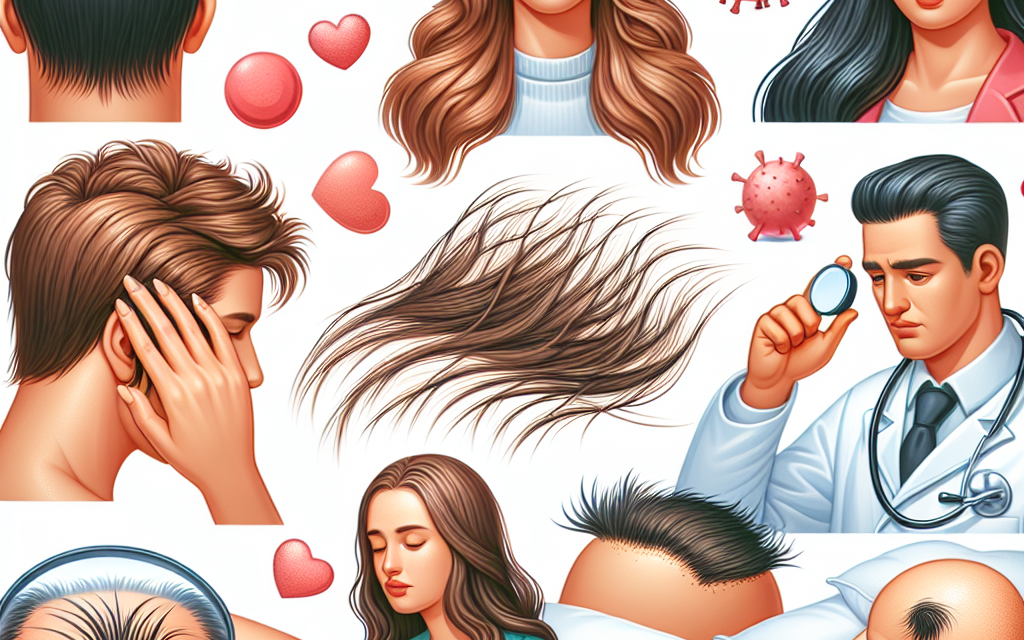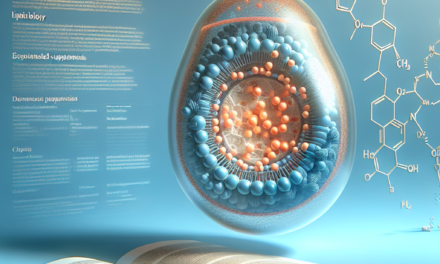Key Indicators That Your Hair Loss Needs Expert Care
Hair loss is a common concern that affects millions of people worldwide. While some degree of hair thinning is normal as we age, there are specific indicators that suggest your hair loss may require expert intervention. Understanding these signs can help you take proactive steps to address the issue before it escalates. In this article, we will explore five key indicators that your hair loss needs expert care, providing detailed insights and guidance on each topic.
1. Sudden or Patchy Hair Loss
One of the most alarming signs of hair loss is when it occurs suddenly or in patches. This type of hair loss can be indicative of underlying health issues that require immediate attention.
Sudden hair loss, known as acute telogen effluvium, can be triggered by various factors, including:
- Severe stress or trauma
- Illness or surgery
- Hormonal changes, such as pregnancy or menopause
- Nutritional deficiencies
Patchy hair loss, on the other hand, is often associated with conditions like alopecia areata, an autoimmune disorder where the immune system mistakenly attacks hair follicles. This can lead to round patches of hair loss on the scalp or other areas of the body.
For instance, a case study published in the Journal of the American Academy of Dermatology highlighted a 30-year-old woman who experienced sudden patchy hair loss after a stressful life event. Upon consulting a dermatologist, she was diagnosed with alopecia areata and received treatment that included corticosteroid injections, which helped regrow her hair.
If you notice sudden or patchy hair loss, it is crucial to consult a healthcare professional. They can conduct a thorough examination, possibly including blood tests or scalp biopsies, to determine the underlying cause and recommend appropriate treatment options.
2. Excessive Shedding During Daily Activities
While it is normal to lose some hair daily, excessive shedding can be a sign that your hair loss needs expert care. On average, individuals lose about 50 to 100 hairs per day. However, if you notice significantly more hair in your brush, on your pillow, or in the shower drain, it may be time to seek help.
Excessive shedding can be caused by various factors, including:
- Hormonal imbalances
- Thyroid disorders
- Chronic stress
- Medical conditions such as lupus or polycystic ovary syndrome (PCOS)
A study published in the International Journal of Trichology found that women experiencing excessive hair shedding often had underlying hormonal issues. The researchers noted that addressing these hormonal imbalances through medical intervention led to significant improvements in hair density and overall health.
To assess whether your hair shedding is excessive, consider keeping a hair diary for a few weeks. Document the amount of hair you lose daily and any accompanying symptoms, such as changes in your scalp condition or overall health. This information can be invaluable when consulting with a healthcare provider.
3. Thinning Hair or Receding Hairline
Thinning hair or a receding hairline is another critical indicator that your hair loss may require expert care. While some degree of thinning is normal with age, significant changes in hair density or hairline shape can signal more serious issues.
Common causes of thinning hair include:
- Genetic predisposition (androgenetic alopecia)
- Hormonal changes
- Medical conditions such as iron deficiency anemia
- Overuse of hair styling products or heat treatments
For example, androgenetic alopecia, also known as male or female pattern baldness, is a hereditary condition that affects both men and women. According to the American Academy of Dermatology, approximately 50 million men and 30 million women in the United States experience this condition. It typically presents as a gradual thinning of hair on the crown and temples in men, while women may notice widening part lines or overall thinning.
If you observe significant thinning or a receding hairline, it is essential to consult a dermatologist or trichologist. They can perform a scalp examination and recommend treatments such as minoxidil, finasteride, or low-level laser therapy, which have shown effectiveness in promoting hair regrowth.
4. Changes in Hair Texture or Quality
Another indicator that your hair loss may need expert care is a noticeable change in hair texture or quality. If your hair becomes brittle, dry, or excessively oily, it may signal underlying health issues or improper hair care practices.
Factors that can contribute to changes in hair texture include:
- Hormonal fluctuations
- Dietary deficiencies (e.g., lack of protein, vitamins, and minerals)
- Environmental factors (e.g., pollution, UV exposure)
- Overuse of chemical treatments (e.g., dyes, relaxers)
A case study published in the Journal of Cosmetic Dermatology examined a group of women who reported changes in hair texture due to hormonal imbalances. After undergoing hormone therapy and nutritional counseling, participants experienced significant improvements in hair quality and overall health.
If you notice changes in your hair texture, consider evaluating your diet and hair care routine. Incorporating nutrient-rich foods, such as leafy greens, nuts, and lean proteins, can support hair health. Additionally, consulting with a dermatologist can help identify any underlying issues and recommend appropriate treatments or lifestyle changes.
5. Scalp Issues or Inflammation
Scalp health plays a crucial role in hair growth and overall hair health. If you experience persistent scalp issues, such as itching, redness, flaking, or inflammation, it may indicate that your hair loss requires expert care.
Common scalp conditions that can lead to hair loss include:
- Psoriasis
- Seborrheic dermatitis
- Folliculitis
- Fungal infections (e.g., ringworm)
For instance, a study published in the Journal of Dermatological Treatment found that individuals with seborrheic dermatitis often experienced hair loss due to inflammation and irritation of the scalp. Treatment options included medicated shampoos and topical corticosteroids, which helped alleviate symptoms and promote hair regrowth.
If you notice any scalp issues accompanying your hair loss, it is essential to seek professional help. A dermatologist can diagnose the condition and recommend appropriate treatments, such as medicated shampoos, topical treatments, or lifestyle changes to improve scalp health.
Conclusion
Hair loss can be a distressing experience, but recognizing the key indicators that it requires expert care can empower you to take action. Sudden or patchy hair loss, excessive shedding, thinning hair or receding hairlines, changes in hair texture, and scalp issues are all signs that you should consult a healthcare professional.
By understanding these indicators and seeking timely intervention, you can address underlying health issues, explore effective treatment options, and ultimately improve your hair health. Remember, early detection and intervention are crucial in managing hair loss effectively. If you notice any of these signs, don’t hesitate to reach out to a dermatologist or trichologist for expert guidance and support.





